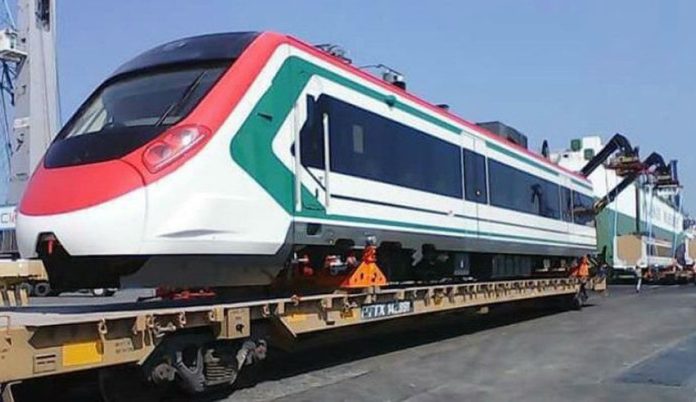Poor planning has led to large overruns on three major infrastructure projects undertaken by the current federal government, according to a new study.
México Evalúa, a public policy think tank, found that as of August the projected cost of the new Mexico City International Airport (NAICM) was 68% higher than the original estimate and that forecast expenditure on the Mexico City-Toluca passenger train was 77% higher than the amount first budgeted.
The Cuernavaca Paso Express highway, which officially opened in April last year, exceeded its construction budget by 73%, México Evalúa said.
According to the study, called ¡Ojos a la Obra! (Eyes on the Job!), the projected cost of the NAICM has increased from 168.88 billion pesos (US $9 billion) when it was first announced in 2014 to 285 billion pesos (US $15 billion) today.
Whether President Peña Nieto’s signature infrastructure project will ever be completed remains unclear as the incoming federal government has announced that it will hold a public consultation on the new airport’s future at the end of this month.
The projected cost of the Mexico City-Toluca intercity train has increased from 33 billion pesos (US $1.7 billion) to almost 60 billion (US $3.1 billion) over the past four years, the study found.
Construction of the 57-kilometer railway has been delayed by protests, construction problems and legal problems. It was originally scheduled to be completed by December 2017.
The total cost of the Paso Express, on which the National Human Rights Commission (CNDH) charges four people have died due to negligence, was just over 2.2 billion pesos (US $115.4 million), around 900 million pesos more than the initial projection of just under 1.3 billion pesos.
México Evalúa’s findings were based on contracts signed for work on each of the three projects.
The study found that some work on all three had to be redone because of “systematic failures in the preparation of the infrastructure projects . . . that started without having a sufficiently developed design plan.”
México Evalúa also assessed the levels of transparency and competition in the tendering processes.
The study determined that there was only an “additional effort” for the tendering process to be transparent for the NAICM project while tendering for both the rail and highway projects was not up to international standards because a lot of the information was not made public.
It also found that there was a lack of competition in the tendering processes for all three projects, which in some cases effectively resulted in contracts being directly awarded.
México Evalúa said the tendering process for the Paso Express was the worst in respect to both levels of competition and transparency.
In a report released yesterday, the CNDH said the Secretariat of Communications and Transportation and the state development bank Banobras had possibly engaged in a “corruption scheme” on the project through the “manipulation” and “fragmentation” of contracts.
Source: Milenio (sp)
